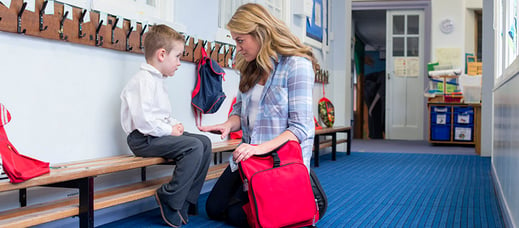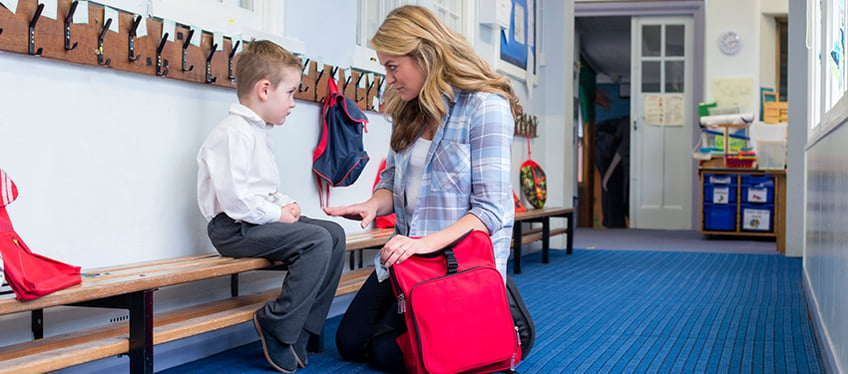

I started out thinking I would write about how CLASS can help children who have challenging behavior, and then the thought occurred: that while yes indeed, I am helping children with difficult behaviors, I’m actually using CLASS to take away the focus from the child having the challenging behavior and instead, placing it on the teacher who sets the environment for the child.The CLASS tool has over 60 behavioral indicators that a teacher can check before needing to put a child on a behavior plan or even an IEP. I encourage the teachers that I mentor to look at a CLASS scoring sheet to match a child’s difficult behavior with a CLASS indicator.
For example, a child might have difficulty coming into the classroom every morning, so the teacher may make a note in the area she thinks the behavior correlates. She can ask herself these questions under Emotional Support: Am I smiling when the child comes to the door? Am I responding quickly to the needs of the child? Am I acknowledging their emotions? Perhaps the child comes into the classroom fine in the morning but loses it during center time. The teacher has the option to ask herself more questions: Does the child have enough to do? Are they taking risks with their learning? Do I have an individual job for the child?
If all behavior is a form of communication, then the CLASS tool literally provides a road map to help decipher challenging behavior. CLASS gives coaches and administrators an objective framework through which to conference with teachers. Once teachers have done a self-reflection with a scoring sheet, I will informally observe them in regards to one child. When we meet after the observation, I am able to say, “I noticed that you didn’t respond in a warm tone to (the child in question). Let’s look at the CLASS manual to see what might be helpful for you.”
By speaking through the CLASS tool, we can place the emphasis back on the teacher’s intention and influence in the classroom and will begin to see children's behavior through a new lens. CLASS has provided us with over 60 behavioral markers to check and I’m betting that many behavioral problems in the classroom will diminish if teachers are encouraged to use these markers to take another look and reframe the challenging dynamics in their classrooms.
 Beth Peddle is the instructional literacy coordinator for NHCS Early Childhood Education program in Wilmington, North Carolina. Beth is a teacher mentor and coach, storyteller, general organizer of things, and is interested in mind/body/spirit connections in public school. She holds a teaching license in Birth-Kindergarten education and a Masters degree in Education with a specialization in Language and Literacy. Like Dr. Becky Bailey, she believes "Love is the best motivator for learning and growth."
Beth Peddle is the instructional literacy coordinator for NHCS Early Childhood Education program in Wilmington, North Carolina. Beth is a teacher mentor and coach, storyteller, general organizer of things, and is interested in mind/body/spirit connections in public school. She holds a teaching license in Birth-Kindergarten education and a Masters degree in Education with a specialization in Language and Literacy. Like Dr. Becky Bailey, she believes "Love is the best motivator for learning and growth."

